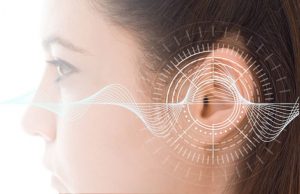Sensorineural hearing loss is a common condition affecting millions of people worldwide. In the United States, approximately 36 million adults are experiencing some degree of hearing loss. Among the various treatment options available, hearing aids have emerged as an effective solution for individuals with sensorineural hearing loss.
In this article, we will delve into the importance of hearing aids in managing sensorineural hearing loss and explore their benefits in improving hearing and speech comprehension.
Understanding Sensorineural Hearing Loss:
Sensorineural hearing loss occurs when the delicate hair cells in the inner ear or the auditory nerve become damaged or deteriorate over time. This type of hearing loss is typically permanent and often associated with age-related factors, noise exposure, genetic predisposition, or certain medical conditions.
Individuals with sensorineural hearing loss commonly experience difficulties in understanding speech, distinguishing sounds, and perceiving high-frequency sounds.
The Role of Hearing Aids:
Hearing aids have revolutionized the management of sensorineural hearing loss, offering significant benefits to individuals seeking improved hearing and speech comprehension. These devices work by amplifying sounds and delivering them directly to the ear, compensating for the diminished auditory function caused by damaged hair cells or the auditory nerve.
The Benefits of Hearing Aids for Sensorineural Hearing Loss:
1. Amplification and Sound Enhancement:
– By amplifying sounds across different frequencies, hearing aids help individuals with sensorineural hearing loss hear sounds they may have otherwise missed.
– Advanced digital hearing aids can selectively amplify speech sounds, making conversations clearer and enhancing overall speech comprehension.
2. Customized Prescriptions:
– Hearing professionals conduct thorough assessments to determine the specific hearing needs of each individual.
– Customized hearing aid prescriptions ensure that the device is tailored to the person’s unique hearing loss profile, optimizing its effectiveness.
3. Speech Recognition and Communication:
– Hearing aids enhance speech recognition by amplifying and clarifying speech sounds, improving communication in various settings.
– Advanced features such as noise reduction algorithms and directional microphones help reduce background noise and focus on speech, making conversations more intelligible.
4. Improved Quality of Life:
– Hearing aids have been linked to enhanced overall quality of life, as they enable individuals to actively engage in social interactions and enjoy meaningful connections with their loved ones.
– Improved hearing can positively impact mental well-being, emotional health, and overall cognitive functioning.
Factors to Consider for Hearing Aid Selection:
1. Consultation with Hearing Professional:
– Seeking professional guidance from a hearing professional is crucial in determining the appropriate hearing aid for an individual’s specific needs.
– Hearing professionals conduct comprehensive evaluations, consider lifestyle factors, and recommend suitable hearing aid options.
2. Technological Advancements:
– Consider the latest technological advancements available in hearing aids, such as digital signal processing, wireless connectivity, and automatic sound adjustments.
– Advanced features can enhance user experience and provide greater convenience in various listening environments.
3. Style and Comfort:
– Hearing aids come in various styles, including behind-the-ear (BTE), in-the-ear (ITE), and completely-in-canal (CIC).
– Factors like personal preference, comfort, and cosmetic considerations may influence the choice of hearing aid style.
Conclusion:
For those suffering with sensorineural hearing loss, hearing aids can play a pivotal role in improving hearing capabilities, enhancing speech understanding, and restoring a better and more social quality of life. Modern hearing aids offer sound amplification and customization, contributing to better communication, increased social engagement, and overall well-being.
By considering factors such as consultation with a hearing care professional, technological advancements, and personal preferences, individuals can select hearing aids that meet their specific hearing needs, lifestyle, and budget.
If you or a loved one is experiencing sensorineural hearing loss, consult with a hearing healthcare professional to explore the benefits of hearing aids in reclaiming the joy of hearing and participating fully in life’s vibrant soundscape.




